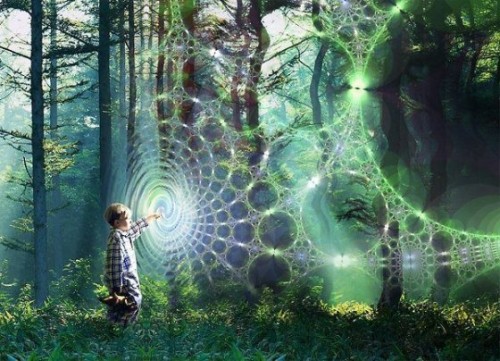Members of METI (Messaging Extraterrestrial Intelligence), a San Francisco-based research organisation, convened in Paris last week to discuss aliens. Or, rather, the complete and utter lack of them, seemingly anywhere, despite decades of us searching the skies.
In a nutshell, this conundrum is known as the Fermi Paradox: the riddle as to why, with billions upon billions of stars all around us, we've never heard a solitary peep out of ET.
Lots of hypothetical answers to the problem exist. Maybe extraterrestrial life hit some kind of wall we don't yet understand. Maybe they're all asleep. Maybe there's nobody out there anymore, and maybe it's all our fault.
But there's another possible answer to the Fermi Paradox, one that was revisited by the METI researchers in Paris last week: what if the reason we've never seen or heard from aliens is because we've somehow been quarantined by them, contained in a kind of cage, like a specimen in a galactic zoo?
"This puzzle of why we haven't detected extraterrestrial life has been discussed often," METI director and astrobiologist Florence Raulin Cerceau said at the event, held at the science museum La cité des sciences et de l'Industrie.
"But in this workshop's unique focus, many of the talks tackled a controversial explanation first suggested in the 1970s, called the 'zoo hypothesis'."
The zoo hypothesis might sound like science fiction, and it actually is, often turning up as a motif in sci-fi novels, TV shows, movies, and video games.
But it's also a serious (if entirely hypothetical) response to the Fermi Paradox, sometimes described as the 'Great Silence'.
"Perhaps extraterrestrials are watching humans on Earth, much like we watch animals in a zoo," said METI president Douglas Vakoch.
"How can we get the galactic zookeepers to reveal themselves?"
For METI, it's not a rhetorical question: the organisation actually exists to try and find ways to make contact with alien life, as a kind of proactive branch of the search for extraterrestrial intelligence (SETI).
The background of the zoo hypothesis is a 1973 paper by MIT researcher John Ball.
"Extraterrestrial intelligent life may be almost ubiquitous," Ball wrote.
"The apparent failure of such life to interact with us may be understood in terms of the hypothesis that they have set us aside as part of a wilderness area or zoo."
In other words, as Josh Hrala explained for ScienceAlert in 2016, the zoo hypothesis assumes that alien life is out there, but it's so advanced, it doesn't want to engage with us, either because it doesn't want to influence our society, or it's content to otherwise simply monitor it from afar.
While we can't be sure of the reasons we're in the zoo, we can speculate.
"ETI may be discreetly and inconspicuously watching us but not dabbling," Ball wrote in later research.
"Our biosystem and culture are surely of some interest; Earth is worth studying at least by a few of their scientists."
While the zoo hypothesis may not offer more answers than that, at least it's around to give us another hypothetical explanation for why the Universe seems so lonely sometimes.
"It seems likely that extraterrestrials are imposing a 'galactic quarantine' because they realise it would be culturally disruptive for us to learn about them," researcher Jean-Pierre Rospars from the Institut national de la recherche agronomique said at the METI workshop.
"There's no reason to think that humans have reached the highest cognitive level possible. Higher levels might evolve on Earth in the future and already be reached elsewhere."

Some people think we're living in a vast computer simulation contrived by an advanced alien intelligence. But not METI scientists. The truth, they say, is much simpler than that.




